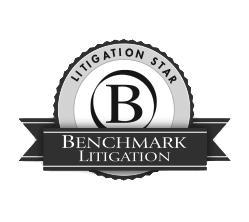Bristol Meyers $10 Million Verdict Due to Bad Implants
Call 410-825-5287 for a free medical malpractice consultation
Baltimore Firm Wins $10 Million Implant Verdict.
Jury Finds Silicone caused Woman's Immune-System Illness.
There are thousands of breast-implant cases pending throughout the country but a Baltimore County Law Firm may have won the lasrgest compensatory-damage award for a single plaintiff in a silicone-implant case yesterday.
The Daily Record
Tuesday, January 5, 1999
Firm Wins $10M Implant Verdict
Jury Finds Silicone Caused Woman’s Immune-System Illness
By Stacey Winakur
Daily Record Legal Affairs Writer
There are thousands of breast-implant cases pending throughout the country, but a Baltimore County law firm may have won the largest compensatory-damage award for a single plaintiff in a silicone-implant case yesterday when a federal jury awarded $10 million to a Washington woman who claimed her implants made her sick.
The case marked the first loss after six straight defense verdicts for implant manufacturer Bristol-Myers Squibb, according to the lawyer for the company.
“The breast-implant manufacturers have had a fairly substantial run of victories, particularly in convincing judges to throw cases out on the science,” said Robert J. Weltchek, one of the plaintiff’s lawyers and a partner with Snyder, Weiner, Weltchek, Vogelstein & Brown.
Despite the flood of lawsuits filed since the U.S. Food and Drug Administration placed a moratorium on silicone implants in 1992, several scientific studies have found no connection between silicone implants to immune system ailments such as scleroderma, lupus and rheumatoid arthritis.
Last month, an independent panel of four scientists appointed by a federal judge in Alabama, where almost 9,000 implant cases are pending, found that there is no definite link between implants and auto-immune disorders.
“There is no relationship between implants and disease,” James T. Conlon, a lawyer for Bristol-Myers Squibb, said.
But the jury in the case decided yesterday did not hear about last month’s study. The judge ruled that, based on the evidence in the case, the scientific question should be decided by the jury.
‘Horribly diseased’
Brenda G. Meister, a 55-year-old attorney, was diagnosed with scleroderma – a usually fatal immune system disease that causes thickening of the skin and other tissue- in 1987, 10 years after receiving silicone breast implants.
Her rheumatologist testified at trial that after the implants were removed in 1991, some of Meister’s most serious symptoms eased. Her lungs, which had been “horribly diseases,” Weltchek said, returned to normal.
“That was a compelling piece of evidence for the treating doctor,” according to Weltchek, noting that he and his partner Stephen L. Snyder made a tactical decision not to call high-cost experts as Bristol-Myers did.
“We were really able to show that the epidemiology out there is pretty much worthless,” Snyder said. “They ask the wrong questions, they investigate the wrong issue and they do a statistical analysis, it’s based on the wrong numbers.”
Conlon disagreed, noting that the verdict was an aberration. “The jury certainly may have been sympathetic to the plaintiff, but it’s clearly a verdict that is not connected to the scientific evidence that is available out there,” he said.
The jury found, in a special verdict, that the implants had caused Meister’s illness. It did not, however, award her punitive damages.
Bristol-Myers Squibb and its subsidiary, Medical Engineering Corp., plan to file a motion to set aside the 10-member jury’s verdict, and will appeal if the motion is unsuccessful.
New York-based Bristol-Myers is part of a global settlement reached by five implant manufacturers in 1995 after large settlement collapsed when Dow Corning filed for bankruptcy. Meister opted out of that settlement, in which awards were limited to $250,000 per plaintiff.
Accolades for Weltchek Mallahan & Weltchek
OVER $600 MILLION IN VERDICTS & SETTLEMENTS FOR OUR CLIENTS




